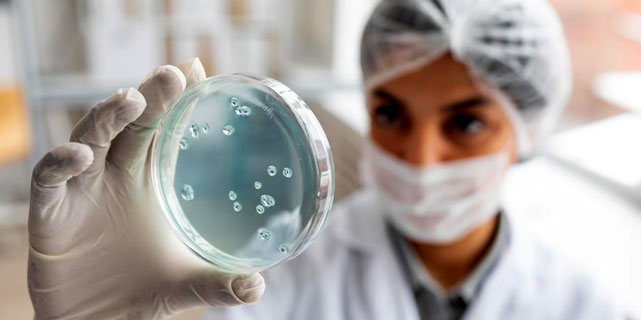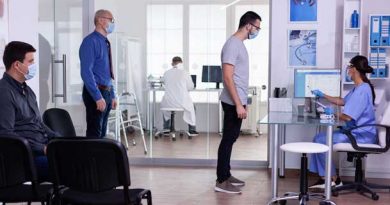10 Career Options Available for Microbiology Honours Students
Microbiology is a scientific study that focuses on the investigation of microscopic organisms. The significance of this specialized field becomes evident when one considers the impact of these tiny life forms on our surroundings. Each year, we witness the emergence of various viruses that pose a threat to human lives. For instance, the world recently witnessed a global pandemic. In 2015, the Ebola virus outbreak in African countries gained significant attention. It is expected that similar viral outbreaks will continue to occur in the future. Hence, microbiology will play a crucial role in developing strategies to safeguard our communities against such outbreaks. In this blog, we will explore 10 career opportunities available for microbiology students to serve society.
Career options available for Students of Microbiology Honours
1. Microbiologist
A microbiologist is a scientist who specializes in studying microorganisms such as fungi bacteria, viruses and parasites under controlled conditions They investigate how these microorganisms affect humans or other animals and help find cures for various diseases. Thus, they play a vital role in maintaining public health, improving food safety, and conserving the environment.
2. Immunologists
An immunologist is a medical professional who studies immunity and its role in protecting the body against disease. Basically, Immunologists find cures for immune-related diseases such as autoimmune disorders, allergies, and immunodeficiencies. They study the body’s immune responses to different antigens, such as bacteria, viruses, and other foreign substances. They thoroughly understand the patient’s medical history and immune system after conducting various tests. Then they develop effective strategies for diagnosis, prevention, and treatment plans tailored to individual patients.
3. Mycologist
A mycologist is a scientist who specializes in the study of fungi, a diverse group of organisms that includes mushrooms, moulds, and yeasts. These experts dedicate their research to understanding the biology, ecology, and diversity of fungi, as well as their interactions with other organisms and the environment. Mycologists play a vital role in various fields, including agriculture, medicine, and ecology. They study fungal diseases in plants and animals, explore the potential of fungi in biotechnology and pharmaceuticals, and investigate the ecological roles of fungi in nutrient cycling and decomposition. Through their work, mycologists contribute to our understanding of the fascinating world of fungi and its impact on both natural ecosystems and human well-being.
4. Water Quality Laboratory Technician
A Water Quality Laboratory Technician is a skilled professional responsible for conducting various tests like pH levels, temperature, turbidity, dissolved oxygen, chemical composition, nutrient levels, heavy metals, and microbial contamination and analyses to evaluate the quality of water samples. They play a critical role in ensuring that water resources meet regulatory standards and are safe for human consumption and environmental sustainability. The technician utilizes sophisticated laboratory instruments and techniques such as spectrophotometry, chromatography, titration, and microbiological culturing to obtain accurate results. Water Quality Laboratory Technicians might need to travel to remote locations, using specialized equipment to collect samples and maintain proper documentation.
5. Clinical Research Associate (CRA)
The role of a clinical research associate involves conducting clinical trials to investigate the characteristics, advantages, and disadvantages of drugs. Clinical research associates are responsible for evaluating whether specific drugs should be permitted for market use. Contract research organizations or pharmaceutical companies may employ clinical research associates to assess widely used drugs or those already in existence. CRAs are actively involved in all stages of ongoing tests, overseeing the effects and precautions of drugs through observation of healthy individuals, patients, or even animals.
6. Food Technologist/Scientist
Food technologists or scientists are responsible for verifying the quality standards of food products available in the market. The food technologist or scientists play a crucial role in ensuring that food products meet the expected quality standards They conduct extensive research to develop innovative techniques and processes that improve the safety, taste, and nutritional value of food products. Their role involves thoroughly examining the manufacturing processes to identify any discrepancies in recipes. Additionally, they have the opportunity to enhance the nutritional value of food items by introducing their own researched ingredients. This grants them the ability to manipulate the nutritional composition of specific foods, thus making them more nutritious.
7. A Medical Technologist
A medical technologist, also known as a clinical laboratory scientist, is a highly skilled healthcare professional who plays a vital role in the diagnosis and treatment of various medical conditions. These professionals are responsible for performing complex laboratory tests and analyses on patient samples such as blood, urine, and tissue specimens. They work in collaboration with other healthcare professionals, including doctors and pathologists, to ensure accurate and timely diagnoses. They are also well-versed in quality control measures and follow strict protocols to ensure the reliability and accuracy of test results. Their expertise and attention to detail contribute significantly to patient care and treatment decisions, making them an indispensable part of the healthcare team.
8. Cosmetic Scientist
A cosmetic scientist is a professional who specializes in the research, development, and formulation of cosmetic products. These scientists combine their knowledge of chemistry, biology, and dermatology to create innovative and effective beauty and personal care items. They work diligently to understand the intricacies of skin, hair, and nails, exploring the physiological and chemical processes that occur within these areas. Cosmetic scientists play a crucial role in the cosmetic industry by formulating products that are safe, beneficial, and appealing to consumers. They conduct extensive research to identify and select the best ingredients for each product, considering factors such as their efficacy, stability, and compatibility with other components.
9. Ecologist
An ecologist is a scientist who studies and understands the interactions between organisms and their environment. They play a crucial role in assessing and preserving the delicate balance of ecosystems, aiming to promote sustainability and protect the planet’s biodiversity. Ecologists employ various scientific methods to gather data and analyze patterns within ecosystems. By examining these complex systems, ecologists can identify potential threats and devise strategies for conservation and restoration.
10. Scientific writer
A scientific writer is a skilled professional who specializes in communicating complex scientific concepts and research findings to various audiences. These individuals possess a unique blend of scientific knowledge and writing expertise, allowing them to bridge the gap between the scientific community and the general public. A scientific writer must possess a deep understanding of the subject matter they are writing about, as well as the ability to write it in simple words.
Thus, these are some of the wide ranges of opportunities offered by the field of microbiology. If you are curious and passionate about the micro world and wish to serve society, you can definitely make a career in microbiology.




